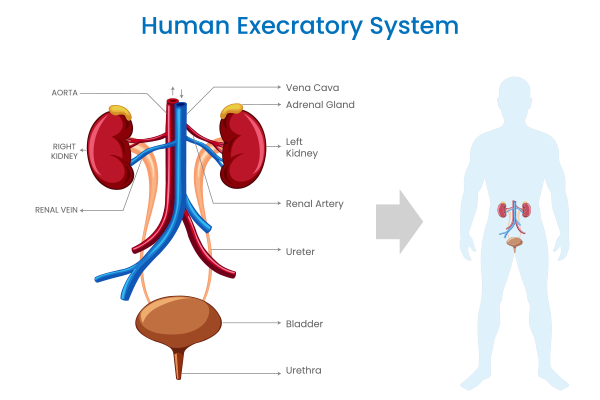.png)
Kidney procedures play a vital role in managing kidney disease and improving the quality of life for patients. Understanding the options and the intricacies of each procedure can help patients make informed decisions. This blog explores common kidney procedures such as Hemodialysis, Peritoneal Dialysis, Kidney Biopsy, and the complete journey of kidney transplant surgery.
For high-quality care and expertise, Manipal Hospitals Patiala offers advanced kidney procedures and transplant services tailored to each patient's needs.
Synopsis
Common Kidney Procedures
Hemodialysis: What to Expect
Hemodialysis is a life-sustaining procedure for patients with end-stage renal disease (ESRD). This process involves filtering waste, toxins, and excess fluids from the blood using a dialysis machine.
-
Procedure: Blood is drawn from the patient, passed through a dialyzer, and then returned to the body.
-
Frequency: Typically performed three times a week, each session lasting about 3-5 hours.
-
Risks: Risks include low blood pressure, cramping, and infection at the access site.
-
Patient Tips: Maintain a balanced diet and follow fluid intake recommendations for better results.
Peritoneal Dialysis: A Home-Based Alternative
Peritoneal Dialysis (PD) uses the peritoneum (the membrane lining the abdomen) to filter blood internally.
-
Procedure: A catheter is placed in the abdomen to introduce dialysate fluid, which absorbs waste products and is then drained.
-
Types:
-
Continuous Ambulatory Peritoneal Dialysis (CAPD): Performed manually multiple times a day.
-
Automated Peritoneal Dialysis (APD): Performed overnight using a machine.
-
Risks: Common complications include peritonitis (infection), catheter blockages, and hernias.
-
Patient Benefits: Greater flexibility and the ability to manage dialysis at home.
-
Kidney Biopsy: Diagnostic Insights
A kidney biopsy is a diagnostic procedure to determine the cause of kidney problems.
-
Procedure: A small tissue sample is taken from the kidney using a thin needle, often guided by ultrasound.
-
Uses: Helps diagnose conditions like nephrotic syndrome, kidney inflammation, or rejection in transplant patients.
-
Risks: Risks include bleeding, infection, and discomfort at the biopsy site.
Comprehensive Guide to Kidney Transplant Surgery

Pre-Transplant Evaluation
Before undergoing kidney transplant surgery, a comprehensive evaluation ensures the patient is fit for the procedure.
-
Medical Tests: Blood tests, imaging studies, and heart function tests are conducted.
-
Psychosocial Evaluation: Ensures patients have the necessary support system post-surgery.
-
Eligibility: Factors like overall health, age, and the presence of chronic diseases determine eligibility.
The Kidney Matching Process
Finding a suitable kidney donor is crucial for transplant success.
-
Living Donors: Often family members or close friends, offering a better match.
-
Deceased Donors: Organs from donors who have recently passed away.
-
Matching Criteria: Includes blood type, tissue type, and cross-matching for antibodies.
Kidney Transplant Surgery Procedure
The surgery typically lasts 3-4 hours and involves placing the new kidney in the lower abdomen.
Surgical Steps:
-
An incision is made in the lower abdomen.
-
The donor kidney is connected to blood vessels and the bladder.
-
The patient’s original kidneys are usually left in place unless infected or enlarged.
Post-Surgical Care and Recovery
Post-surgery care is critical to ensure the kidney functions properly.
-
Medications: Immunosuppressants are prescribed to prevent organ rejection.
-
Follow-Up: Regular monitoring of kidney function through blood tests.
-
Lifestyle Changes: A balanced diet, regular exercise, and avoiding infections are key.
For personalised post-transplant care, Manipal Hospitals Patiala offers dedicated follow-up services and patient education.
Comparison Between Hemodialysis and Peritoneal Dialysis
|
Aspect |
Hemodialysis |
Peritoneal Dialysis |
|
Frequency |
3 times/week |
Daily or overnight |
|
Location |
Dialysis center or home |
Home-based |
|
Flexibility |
Limited by clinic schedule |
More flexible |
|
Infection Risk |
Access site infections |
Peritonitis risk |
What Are the Risks of Kidney Transplant Surgery?
While kidney transplants are generally safe, potential risks include:
-
Rejection: The immune system may attack the new kidney.
-
Infections: Immunosuppressant medications increase the risk of infections.
-
Surgical Complications: Bleeding, blood clots, or leakage at the site of connection.
Conclusion
Kidney transplant surgery and other kidney procedures can greatly improve the quality of life for patients with kidney disease. Understanding each step of the journey and the associated risks helps patients make informed decisions. Contact Manipal Hospitals Patiala today for more information or to consult with the best nephrologist in Patiala. Our dedicated team is here to guide you through every step of your kidney care journey.
FAQ's
Costs vary based on factors like the hospital, donor type, and post-surgical care.
Recovery usually takes about 6-8 weeks, but ongoing monitoring is essential.
Eligibility depends on overall health, age, and severity of kidney disease.
Living donor kidneys typically last 15-20 years, while deceased donor kidneys last 10-15 years.
Risks include rejection, infections, and surgical complications.



















 5 Min Read
5 Min Read













